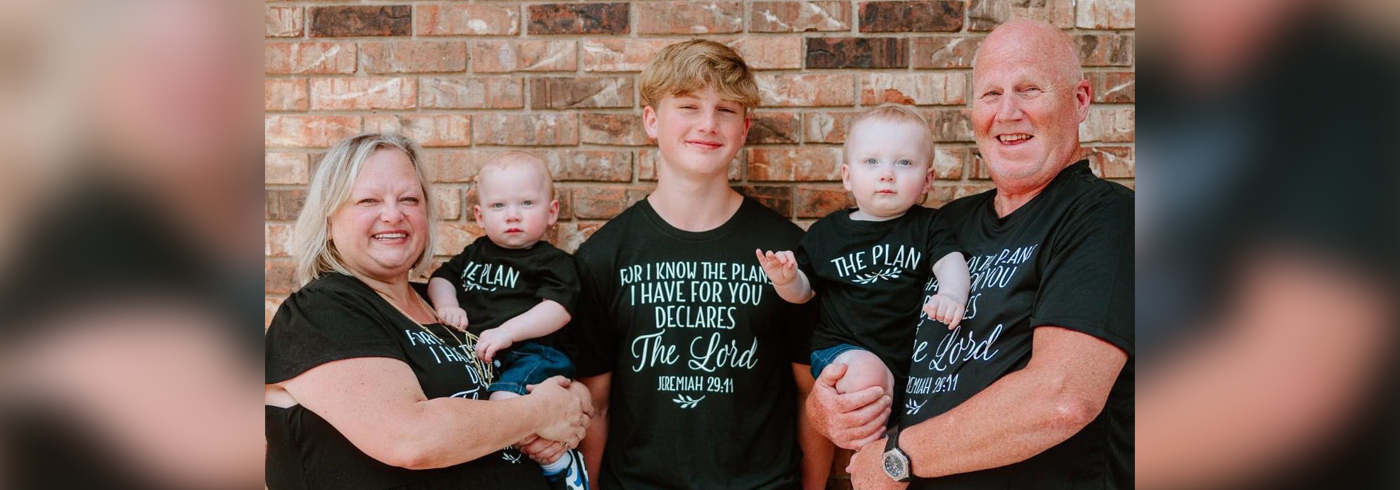Providing Increased Stability
 Research indicates faith-based foster care results in better outcomes for parents, children, and state agencies.
Research indicates faith-based foster care results in better outcomes for parents, children, and state agencies.

Providing Increased Stability
New research suggests that foster children placed through the Assemblies of God national child welfare agency are likelier to exhibit a more stable home environment than a non-faith-based placement.
According to research conducted by the Department of Child and Family Services in Arkansas, children in foster homes where parents received training from the Hot Springs, Arkansas-based COMPACT Family Services had outcomes twice as favorable as those in other foster care. Measuring a 42-month period, an analysis showed 40.7% of children in COMPACT homes achieved permanency versus only 20% in traditional foster placements in the state.
In addition, 37.3% of the kids in COMPACT-equipped foster residences stayed at least six months, compared to 19.4% otherwise.
Five years ago, COMPACT implemented a wraparound care program designed to better support foster parents — who often became discouraged and relinquished their license in frustration. Nationwide, between 30% and 60% of foster care parents quit in the first year. The COMPACT project in Arkansas has maintained a parent stability rate of over 90% over a 4-year period.
COMPACT’s CompaCare Director Johan H. Mostert says the evidence confirms multiple hypotheses that benefit foster children, foster families, and state agencies.
“Children who are in foster care with families that are recipients of a faith community wraparound will display greater levels of safety, stability, and well-being,” says the jovial and tireless Mostert, 72. “Foster parents who are recipients of a faith community wraparound display greater levels of commitment and stability than foster parents at large.” State agencies likewise experience a significant return on investment, according to Mostert.
For example, Jeff and Toni Hanna heard, who learned about foster care through their CompaCare-partnered church, have fostered 22 children in four years. This summer, they adopted twin boys who had come into their home straight from a hospital where they had been abandoned. Congregants from the church they attend, City Life in Hot Springs, wrapped around them while they cared for these premature babies and, when it became possible, facilitated their adoption. The saving to the state of Arkansas of this adoption amounted to more than $600,000.
Mostert says empirical research has become important since the implementation of the 2018 Family First Prevention Services Act, which shifted the emphasis to prevention rather than funding direct services of kids in the system already.
“The way the faith community does interventions has statistically significant benefits,” Mostert says. “Retaining trained foster parents adds up to a big money savings.”
Until 2017, the Arkansas Division of Children and Family Services handled all the recruitment, training, and licensing of foster parents and placement of foster kids in the state. Arkansas then accepted a proposal by COMPACT and three other organizations to handle all those tasks.
In response, Lance E. Nelson, COMPACT’s Arkansas foster care director, then began recruiting churchgoing volunteers to serve as foster parents. Initially, he networked with pastors by attending prayer meetings, coffee klatches, and sectional meetings. After convincing AG pastors of the importance of foster care, the ministers in turn helped recruit adherents. Subsequently, Baptist, Nazarene, Lutheran, and Church of Christ congregations have adopted COMPACT’s CompaCare model.
A key element of CompaCare is implementation of wraparound care, in which other congregants rally around foster parents by providing such assistance as occasional free baby-sitting, respite care, grocery donations, and gift cards for meals or clothing.
Currently, churches in and around Hot Springs are involved in 55 foster child placements. Nelson says the program is about to expand to Little Rock, the capital and largest city in Arkansas.
“One of the core values of the COMPACT program is that foster care is church based,” says Nelson, 43. “We teach churches how to recruit and train families. That’s a better strategy than trying to find families by setting up a booth at a county fair or putting an advertisement on social media.”
Nelson maintains the Church is the only entity that has the capacity to meet the overwhelming foster care need.
“The Church is the place that has the commitment to the redemption of a family all the way through their crisis,” Nelson declares. “We call foster parents family missionaries who are on an assignment from God to redeem another family by helping reunify children with their biological parents.”
Foster parents are retained in part, Nelson says, by the awareness that wraparound care is available if needed. The person CompaCare calls the family advocate — the church-trained liaison — encourages the foster parent to keep going.
That’s important especially for the child, who otherwise may bounce from foster home to foster home. With each such move, the child becomes less trusting and more calloused.
“The less disruption a child has, the more positive outcomes increase exponentially,” Nelson says. A child can only tolerate so many home removals and resettling before starting to exhibit challenging behaviors, he says.
On July 1, replication of the CompaCare model became a reality in three Florida counties after COMPACT consultant Bill R. Hancock convinced state lawmakers of its efficacy.
Earlier this year, Mostert and Hancock co-authored a peer-reviewed article in the journal Spirituality in Clinical Practice with a team from the University of North Texas. The authors found only six articles out of a pool of 811 published articles on the effectiveness of faith-based foster care. Two of these represented doctoral projects on CompaCare and Mostert says these studies and the research by Arkansas DCFS can serve as a springboard for the CompaCare model to be rolled out throughout the country. In the past couple of years, the Assemblies of God has placed an increased emphasis on meeting foster care needs.
Photo: Toni Hanna (left) and her husband, Jeff (right) have adopted twin boys Luke and Liam as well as son Jackson (center).




